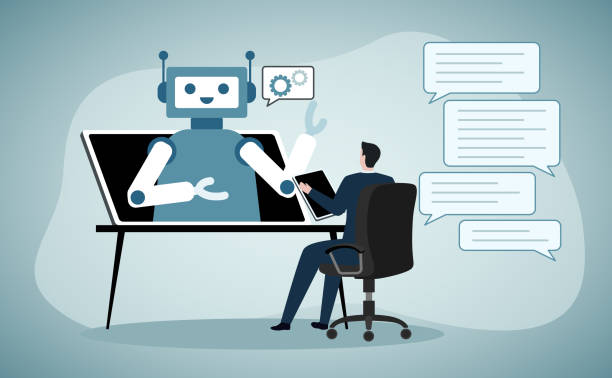Benefits of AI Assistants In Learning

Do you know the benefits of AI Assistants in learning? Technology development has made it possible for artificial intelligence (AI) to be incorporated into a variety of sectors, including education.
The use of AI technologies in education has been growing for more than three decades, and it has had a significant influence on the established educational system.
Artificial intelligence (AI) tools are becoming a required component of the educational system due to the rising need for personalised and effective learning. These tools include ones that use AI to create material, provide assessments, personalise feedback, and measure progress.
The benefits of AI assistants in learning have a promising future, and as technology advances, so will AI’s place in the classroom.
AI in education is a subject that needs constant investigation and research since it has the ability to completely transform the current educational system.
Read: The Power Of Generative AI In The eLearning Industry
AI Assistants: What is it?
AI learning Assistants are technologies that employ artificial intelligence to improve the educational process by offering assistance to students and teachers.
The learning process is made more effective and efficient by automating the generation of assessments, creating instructional content, personalising learning, providing immediate feedback, and monitoring progress.
Benefits of AI Assistants In Learning
The old educational system is undergoing a change thanks to the introduction of AI helpers for learning, which offer teachers and students individualised and effective support.
AI Assistants are being included into many educational systems as a result of technological advancements to improve the learning process.
Automation of assessment generation is one of the main advantages of AI in education. Based on instructional information, AI algorithms can swiftly produce multiple-choice questions, short-answer questions, and even essay-style questions.
This helps educators save time so they can concentrate on other crucial responsibilities like giving each student unique feedback. Additionally, AI can rapidly and properly mark assessments, saving teachers even more time.
AI’s capacity to provide instructional content is another advantage in the field of education. AI makes it simple for teachers to produce a broad variety of interactive teaching resources, such as pictures, videos, games, and simulations. These resources can be utilised to support learning and maintain students’ attention in the classroom.
Additionally, AI may assist teachers in developing personalised material that is catered to the need of their pupils, increasing learner motivation and engagement.
Simultaneously, the AI Assistants may help in the creation of instructional content by examining learner data to pinpoint areas in which students require extra and immediate attention.
With this knowledge, educators may develop specialised learning resources to aid students in developing a better comprehension of certain ideas.
Furthermore, AI may assist teachers in locating and incorporating pertinent instructional resources—such as videos and articles—into their course materials, facilitating students’ access to and utilisation of these resources.
Future of AI Assistants In Learning
Artificial intelligence is quickly altering the educational environment and the methods used by teachers and students to impart knowledge.
The usage of AI Assistants, which are technologies that employ AI to support both teachers and students, is one of the primary applications of AI in education.
It is obvious that AI Assistants and content creators will play a big role in influencing the future of education as AI develops.
As educators and institutions become more aware of the advantages of these cutting-edge tools, we may anticipate a wider use of AI in education in the years to come.
The use of AI in education has a bright future ahead of it, one that is ripe with opportunities, whether it be through the usage of content creators or AI Assistants.
Examples of AI Assistants In Learning
An illustration of how an AI Assistants might be applied to learning is given below:
Consider a student studying for a history test with the aid of an AI-powered learning Assistants. The AI companion can:
1. Provide Personalized Content: The AI Assistants evaluates the student’s current level of knowledge and preferred learning method before customising the study materials.
It could provide a variety of media, including text, videos, and interactive quizzes.
2. Answer Questions: The learner may ask the AI Assistants questions about historical occurrences, people, or ideas, and it will respond with thorough explanations or point them in the direction of pertinent sources.
3. Create Study Plans: The AI Assistants creates a personalised study schedule by breaking down topics into doable daily activities, taking into account the exam date and the student’s speed.
4. Practice Quizzes and Tests: The AI Assistants provides example examinations and practise exams with immediate feedback to help students assess their learning and pinpoint areas that require development.
5. Language Translation: The AI Assistants may translate text and give explanations in the student’s chosen language if they are learning history in a foreign tongue.
6. 24/7 Availability: Since the AI helper is accessible 24/7, students may study whenever it is most convenient for them, even outside of regular class times.
7. Progress Tracking: It tracks the student’s development, pointing out areas for improvement and recommending additional materials or subjects to concentrate on.
8. Collaboration and Discussion: The AI Assistants may guide conversations for group projects or collaborative learning, offer pertinent research articles, or even help arrange group meetings.
9. Accessibility: By offering text-to-speech features and other material formats, it provides accessibility for all students, including those with impairments.
10. Continuous Learning: The AI Assistants adjusts over time, gaining information through interactions with the learner and enhancing its suggestions and assistance as their expertise increases.
This illustration shows how AI Assistants might improve learning by offering individualised, on-demand guidance, eventually assisting students in achieving higher academic results.
AI Assistants In Learning Jobs
AI learning Assistants, commonly referred to as Educational AI or EdTech AI, have the potential to revolutionise a number of facets of training and education.
Here are a few positions and responsibilities associated with AI learning Assistants:
1. AI Education Content Developer: These experts design instructional materials specifically for AI-driven systems. They provide interactive content such as courses, lessons, tests, and quizzes that are tailored for AI-assisted learning.
2. Machine Learning Engineer: Machine learning experts in engineering create the algorithms that power learning AI helpers. They focus on natural language processing, recommendation systems, and other AI technologies.
3. Data Scientist: To get insights, data scientists analyse learner data. They aid in enhancing the AI Assistants’s suggestions, finding learning patterns, and coming to data-driven conclusions to boost learning.
4. UX/UI Designer: Designers of user experiences (UX) and user interfaces (UI) concentrate on developing user-friendly and captivating interfaces for educational platforms driven by AI.
They guarantee that learning is effortless and fun.
5. Content Reviewer and Quality Assurance: These specialists make sure that the instructional material offered by AI Assistants is correct, current, and complies with educational standards.
Additionally, they look for any biases in the AI’s suggestions.
6. AI Learning Coach: In order to assist users or students through the AI-assisted learning process, AI learning coaches work closely with them.
They offer assistance, respond to enquiries, and aid consumers in getting the most out of the AI Assistants.
7. Educational Technologist: These people are experts in incorporating AI and other technologies into educational contexts. They work together with academic institutions and instructors to successfully adopt AI helpers.
8. Instructional Designer: For AI-powered courses, instructional designers develop the pedagogical framework. They create the framework, goals, and tests in accordance with AI-driven learning systems.
9. AI Ethics Specialist: Given the ethical questions surrounding the use of AI in education, experts in the field put their attention on ensuring that AI learning Assistants follow the law, particularly when handling sensitive student data.
10. AI Product Manager: Platforms for learning driven by AI are developed and improved under the direction of AI product managers.
They specify product roadmaps, rank features, and make sure the AI Assistants complies with learning objectives.
11. Researcher in AI and Education: These experts carry out studies on the efficiency of AI Assistants, look into the effects of AI on education, and add to the body of academic knowledge.
12. AI Sales and Marketing: AI-driven learning solutions are promoted by experts in this field to educational institutions, schools, and people. They assist in locating new markets and consumers for instructional AI technologies.
13. AI Software Developer: The underlying software and infrastructure for AI learning Assistants are made by developers with experience in AI.
They develop the platform’s scalability and dependability and build the code for the AI algorithms.
These positions reflect a variety of employment options in the expanding field of AI learning Assistants. The need for individuals with knowledge of this field is projected to grow as AI continues to influence how education will be provided in the future.
Conclusion
The introduction of AI assistants into the educational setting has created a wide variety of new work prospects. These positions include anything from developing content to engineering machine learning, data analysis, and user experience design.
AI has not only changed the way we learn, but it has also spawned a profession devoted to advancing and using technology’s potential in education.
Furthermore, specialised professions aimed at guaranteeing ethical and fair AI-assisted learning experiences have emerged in response to ethical concerns around AI in education.
These career possibilities are anticipated to grow as AI develops and becomes a fundamental component of the educational environment, providing exciting chances for people who are passionate about the nexus between technology and learning.
AI helpers for learning jobs offer a creative and dynamic industry where experts may help shape the future of education and aid students of all ages in more successfully and efficiently achieving their educational goals.







